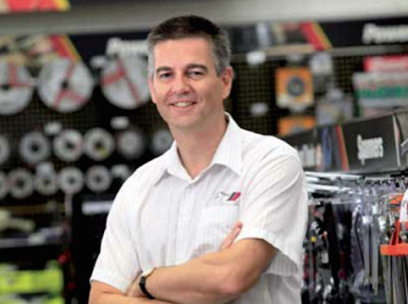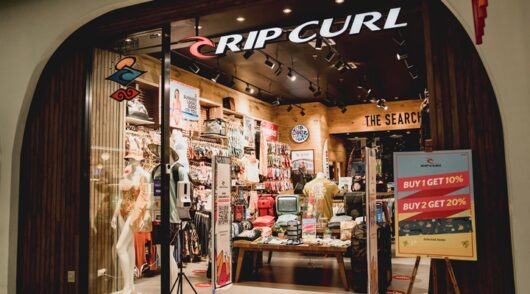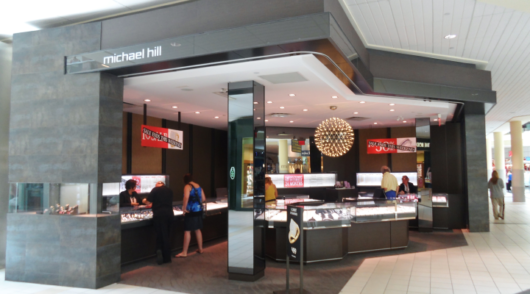
The era of excess inventory being physically destroyed or sent to landfill is well and truly over, according to Peter Birtles, the former CEO of Super Retail Group, who recently joined the board of Good630, a nonprofit that donates brand new, surplus goods to Australian families in need.
“France has just legislated that consumer goods companies and retailers can’t put new products into the waste system anymore,” Birtles told Inside Retail.
“I can imagine it’s going to be something that’s not acceptable as we go forward with the increased concern over the environment.”
Birtles said excess inventory was not a significant issue for Super Retail Group during his 13-year tenure as CEO, since Supercheap Auto and to some extent BCF are less seasonal and trend-driven than other retail businesses, but he knows many other retailers struggle with it.
“Given that the size of the [Australian] market is not huge, to manage the cost of the product, you’ll find that product is often bought well in advance and in high quantities,” he said.
“We don’t have the flexibility in supply chains to be able to order lower volumes and still keep the cost at a reasonable level for the consumer.”
From a technology point of view, many retailers don’t have the analytic capabilities to accurately forecast demand, or allocate inventory across their store network. There’s also a lack of skilled merchandise planners.
“Every retailer is keen to increase their merchant planning capability. We just don’t have enough around in the country,” Birtles said.
And while some smaller retailers have adopted an on-demand manufacturing model, he’s not convinced this will take off in the short term.
“I do think it’s going to be a relatively niche area in the foreseeable future. The reality of the retail economy is mass production,” he said.
The end result is that many retailers, especially in the fashion and technology sectors, are left with billions of dollars worth of brand-new, unsold stock on their hands.
“There are no specific figures that we can point to as to the quantum of surplus inventory in Australia…but based on some work done in the UK, it would suggest it’s in the order of $2 billion,” Birtles said.
Retailers currently clear excess stock in several ways, including promoting and discounting it internally, sending it to online discount sites and donating it to charity.
That’s where Good360 comes in. It partners with retailers to take excess inventory and distribute it to charities and schools around Australia to give it to families in need.
“The thing that attracted me to Good360 is that it has the ability to take products out of the waste system, but also has the aspect of helping underprivileged families, individuals and so on. I think it’s a really strong, worthwhile cause,” Birtles said.
Birtles, who also recently joined the board member of Metcash and APG & Co, which owns the Saba and Sportscraft brands, also spoke to Inside Retail about some of the other key issues retailers are facing today.
Changing expectations
“The expectations of workers are evolving and adapting, so continuing to understand the needs and wants of the workforce is absolutely critical. Everything starts with the team and the people,” Birtles said.
“As an industry, retail needs to become much more customer-centric. There’s a perception that because the industry serves customers, it’s a customer-focused industry, but I think many retailers have still been too product-centric.
“The customer needs to become the hero. Having everyone focused on the customer, and the analytics that support the ability to tailor and adapt the offer to the customer, is critical.”
Purpose-driven businesses
“If you look at the three principal stakeholder groups – employees, customers and, for publicly listed retailers, shareholders – I think they’re increasingly looking for companies to be clear on their position. We’re moving into a world where employees want to work for a company with a purpose,” Birtles said.
“Being such a significant industry, there’s an opportunity for retail to improve so many parts of society, but it’s important to tie that into what the business is about. I don’t feel that business leaders should be putting forward their personal perspectives.”
Diversity in leadership
“What I’ve tried to do is have managers that understood their customers. A key part of that is recognising that customers are diverse, and therefore you need to have that in management,” he said.
“For me, there was a watershed moment six to eight years ago, where we were trying to work out how to attract more female customers into stores for one of our businesses. I remember going in to hear a presentation from the team working on it, and there were 18 men and 2 women on the team. I thought, ‘We’re not going to get the right answers here.’
“I think the best ideas are shaped by diversity, not just diversity of gender, but also background and perspective. The danger of everyone being the same is you’ll get the same old stuff.”
Underpayment scandals
“What I’d say is the situations [of underpayment] have raised awareness of this challenge. More companies are doing internal reviews, and probably uncovering issues they weren’t aware of,” Birtles said.
“If I go back to the Super Retail Group situation, it was [uncovered by] someone coming in who had a different experience and identified the issue. We hadn’t had complaints from the team, it was someone with [the right] knowledge.
“What it highlighted is that we need to make sure teams have sufficient knowledge and that there’s appropriate compliance checking in place.”





